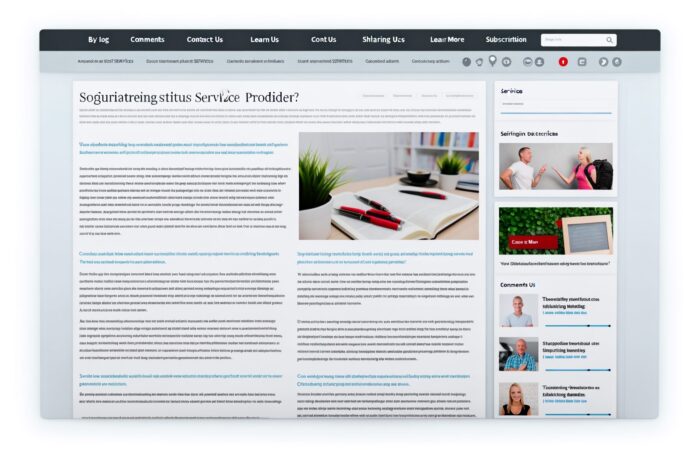Introduction to Niche Communities: Importance and Opportunities
Ever wonder why people are buzzing about niche communities these days? Well, it’s not just a passing trend. There’s a rich tapestry of opportunities and benefits tied to engaging with niche groups. Let’s dive into why these communities are more than just cliques but potential goldmines for growth, innovation, and connection.
What’s a Niche Community Anyway?
Imagine a group of people who share a super-specific interest or passion. Maybe they’re enthusiastic about vintage bicycle restoration, eco-friendly living, or even something as niche as miniature train collectors. These communities are often small but mighty, offering a focused lens on subjects that larger communities might overlook.
Why Are Niche Communities Important?
One word: engagement. In these cozy corners of the internet or real world, members aren’t just casual observers. They’re actively participating, creating, and sharing ideas. This level of engagement is a dream for anyone looking to connect on meaningful levels, from marketers and entrepreneurs to researchers and hobbyists.
- Depth of Knowledge: Niche communities are often wellsprings of specialized knowledge and expertise. This is a place where seasoned pros mix with eager newbies, all sharing a common goal of diving deep into their interests.
- Quality Interaction: In smaller groups, every voice matters. Interactions tend to be more meaningful and personalized. Think quality over quantity.
- Passion and Loyalty: Members are typically very passionate about the community’s focus, which fosters a high level of commitment and loyalty. This passion can be contagious, creating a vibrant atmosphere that can energize even the most niche of interests.
Opportunities Galore!
Now, let’s talk opportunities. Whether you’re a business person, a creative, or just someone with a burgeoning interest, niche communities can be a launching pad for countless ventures:
- Market Insights: For businesses, these communities can act as focus groups providing real-time feedback and ideas. They’re a goldmine for gleaning insights into what makes a very specific audience tick.
- Networking: They say it’s not just what you know, but who you know. Niche communities are perfect for connecting with key influencers and experts in your field of interest.
- Innovation: With so much shared passion, niche communities are hotbeds for innovation. Collaborating on projects, sharing resources, or simply brainstorming – it all adds up to a fertile ground for fresh ideas.
So, why not dive into a niche community today? Whether you’re looking to deepen your existing interests or discover new ones, there’s likely a niche community waiting to welcome you. Who knows? The connections you make could open up paths you never expected. And remember, in these small, passionate groups, your unique skills and insights are not just welcomed, they’re celebrated. Here’s to finding your niche and flourishing within it!
Identifying Relevant Niche Communities
Diving into the world of niche communities can be akin to discovering a goldmine of passion and expertise. But, with so many bustling communities out there, how do you pinpoint the ones that align perfectly with your interests or business goals? Let’s walk through some friendly tips to help you find your tribe!
Understand Your Objectives
First things first, what’s your goal? Understanding why you want to connect with a niche community will guide your search. Are you looking to promote a product, gather unique insights, or perhaps collaborate on a project? Your end goal will determine the kind of community you need to be a part of.
Start with What You Know
Begin by exploring topics you are already familiar with. If you’re into artisan coffee, look for communities where coffee aficionados discuss the latest brewing techniques. This natural starting point makes the initial interaction smoother and more genuine.
Use the Power of Social Media
Social platforms like Twitter, Facebook, Reddit, and Instagram are hotspots for niche groups. Use hashtags, follow influencers in your area of interest, and participate in conversations to find communities that resonate with your objectives.
Check Out Online Forums and Blogs
Don’t forget about forums and blogs! Sites like Quora or niche-specific forums can be treasure troves of communities. These platforms often harbor long-term, deeply invested members who can offer valuable insights and connections.
Attend Events and Webinars
Keep an eye out for events, meetups, and webinars that cater to your interests. Attending these can help you connect with like-minded individuals and groups in a more structured setting. Plus, these interactions can often lead to recommendations for other niche communities to explore.
Use Tools to Your Advantage
Leverage tools designed to help find online communities. Google’s advanced search operators can help uncover forums and discussion boards that you might not find through a regular search. Additionally, consider tools like Meetup for finding local groups or Discord servers that cater to specific interests.
Engage and Observe
Once you’ve identified potential communities, spend some time observing. How do members interact? What kind of content is shared? This observation can confirm whether the community’s vibe and values align with yours. Then, start engaging by contributing meaningful insights and asking thoughtful questions.
Ask for Recommendations
Never underestimate the power of a simple question. If you’re active in one community, why not ask where else these individuals spend their time? Niche community members often belong to multiple groups and can point you to other vibrant communities.
Remember, finding the right niche community is both an art and a science — it requires curiosity, patience, and a bit of networking. But once you find your spot, the opportunities for growth and connection are practically limitless. Happy hunting!
Best Practices for Engaging Niche Communities
Oh, the vibrant world of niche communities! Whether we’re talking about vintage train collectors or modern minimalist designers, each community holds a unique place in the digital landscape, teeming with passionate individuals. Engaging with these groups, however, is an art in itself. Let’s dive into some best practices that will not only welcome you into these circles but also help you flourish within them.
Understand and Respect the Culture
First things first: immerse yourself in the community culture. Every niche community has its own set of norms, jargon, and values. Whether you are engaging through forums, social media platforms, or in-person events, taking the time to understand what drives and excites these community members is crucial. Showing that you genuinely care and respect their interests goes a long way in establishing trust and rapport.
Provide Value Before You Ask for Anything
When engaging with niche communities, always remember the golden rule: give before you take. Can you offer expert advice? Do you have insights or content that they might find invaluable? Perhaps you can facilitate an interesting webinar or provide exclusive resources. Contributing positively to the community not only proves your commitment but also sets a fertile ground for any future interactions.
Be Authentic and Transparent
Nothing turns off a tight-knit community faster than inauthenticity. Always be your genuine self. Whether you are a brand representative or an independent enthusiast, being transparent about your intentions will help mitigate any suspicions. If you are there to learn, say so. If your engagement is part of a larger marketing strategy, find tactful ways to communicate that. Members appreciate honesty and are often more receptive to those who are upfront about their goals.
Engage Regularly and Meaningfully
Engagement shouldn’t be a hit-and-run affair. Regular interaction is key. You don’t want to be remembered as the person who only shows up when needing something. Comment on posts, contribute to discussions, and share relevant content that aligns with their interests—not just your own. This consistent presence builds a familiar face and, more importantly, a trusted member of the community.
- Respond to queries thoughtfully.
- Participate in community events and calls.
- Recognize and celebrate community milestones and successes.
Use the Right Tools
While this might border on the technical side, utilizing the right tools can enhance your engagement efforts. Tools like social media analytics can help you understand peak activity times, the type of content they prefer, and general sentiment within the community. This kind of data can be invaluable in tailoring your engagement strategy.
Remember, engaging with niche communities is not about broadcasting your message but about building meaningful connections that benefit both you and the community. Take your time, be sincere, and most importantly, enjoy the interaction. After all, passion is contagious, and you’re here because something about this community genuinely interests you!
Tools and Platforms for Connecting with Niche Audiences
If you’re looking to dive into the world of niche communities, you’re probably wondering about the best tools and platforms that can help you connect effectively. Well, you’re in the right spot! Let’s break down some of the top options that can bridge the gap between you and your audience in a way that’s both fun and impactful.
Social Media Platforms Tailored to Niche Interests
- Reddit: Often referred to as “the front page of the internet,” Reddit has communities, known as subreddits, for just about every interest under the sun. Whether you’re into rare book collecting or space technology, there’s a subreddit waiting for you!
- Discord: Originally popular among gamers, Discord has expanded to include communities with a variety of interests. It’s perfect for real-time chat, and you can join channels that cater specifically to your niche.
Specialized Forums and Websites
- Niche Forums: Many interests have dedicated forums online. For example, if you’re into vintage cameras, websites like Photo.net can be a goldmine for connecting with fellow enthusiasts and experts.
- Blogs and Online Magazines: Platforms like Medium allow individuals to publish content on specific topics, while online magazines may have dedicated spaces for guest posts from community influencers.
Content Sharing Platforms
- Pinterest: Ideal for visual-centric niches like DIY crafts, fashion design, or cooking. It’s a great way to share visual content, connect through shared interests, and drive traffic to your site.
- YouTube: If your niche benefits from demonstrations, tutorials, or in-depth discussions, YouTube is a fantastic platform for video content. Engaging directly through comments or live videos can also spice up the interaction.
Event and Meetup Platforms
- Meetup: This platform allows you to create or join groups that host regular meetings. It’s a great way to connect offline or online with people who share your specific interests.
- Eventbrite: Often used for organizing larger events, Eventbrite can help you find niche-related gatherings that you can attend to network and grow your community involvement.
Using these platforms not only helps you find your niche audience but also provides them with a valuable space to interact directly with you and each other. It’s all about building relationships and a community around shared interests. Remember, the more engaged and consistent you are, the more you’ll get out of these interactions. So, don’t be shy—dive in, start conversations, ask questions, and be genuinely interested in the insights these communities can offer. You’ll be surprised how much there is to learn and how many opportunities can arise from these connections!
Happy exploring! Remember to keep it fun and stay respectful; after all, at the heart of every successful engagement is a mutual love and respect for the topic at hand.
Extracting Insights from Niche Community Interactions
Ever wondered what goldmines of insights your interactions with niche communities could be? It’s like having a coffee with friends who have the inside scoop on everything you’re passionate about. Every comment, like, share, or post can shed light on what makes your audience tick, helping you tailor your strategies to meet their unique needs. Let’s dive into how you can extract these valuable insights and put them to work!
Listen Actively and Observe
First things first, active listening is key. When engaging with niche communities, it’s not just about monitoring what is being said; it’s about understanding the why behind the words. Pay attention to:
- Common questions or issues that arise
- Feedback on products or services
- Popular topics or trends within the community
This isn’t just skimming through posts; it’s about engaging deeply and noticing patterns that could indicate broader preferences or pain points.
Analyze Sentiments
Understanding the emotional undertone of the conversations can be incredibly telling. Was there an enthusiastic response to a recent update? Or a lukewarm reception to a new policy? Tools like sentiment analysis can help you quantify this feedback, turning raw data into actionable insights. This way, you can gauge community sentiment and adjust your strategies accordingly.
Quantify Engagement
Tracking engagement metrics such as likes, shares, comments, and the growth rate of the community can reveal what content resonates with your audience. High engagement on a particular topic or discussion thread can highlight what your community cares most about, giving you clear direction for future content and initiatives.
Identify Influencers and Advocates
Within every community, there are usually a few key players who drive conversations and influence others. Identifying these influencers can provide a shortcut to gaining broader community buy-in and understanding. Engage with these individuals and consider partnerships or collaborations to amplify your reach within the niche group.
Gather Comparative Insights
Don’t forget to look sideways every once in a while. How does your community react to certain topics compared to others in similar niches? This comparative insight can help you understand if a trend is unique to your community or part of a larger pattern. This helps in positioning your brand or message in a way that’s uniquely tailored yet broadly relevant.
Use Feedback Loops
Finally, make your community part of the learning process. When you implement changes based on their feedback, let them know what you did and why. This not only closes the feedback loop but also builds trust and encourages more engagement. It’s a beautiful cycle of feedback, action, and communication that keeps everyone informed and involved.
By tapping into the depth of insights provided by niche communities, you’re not just broadcasting to an audience, but engaging in a meaningful conversation. This approach not only enriches your strategy but also makes your community members feel valued and heard. So, start tuning in, analyzing, and acting on those insights—your community and your brand will be all the better for it!
Case Studies: Successful Engagements and Their Outcomes
Let’s dive into some real-life stories of brands and businesses that tapped into the power of niche communities, and guess what? They nailed it! These case studies aren’t just about success; they’re a playbook on how to engage with niche audiences effectively and watch your brand flourish. So, grab your notebook (or just bookmark this page!), because these are some golden nuggets you wouldn’t want to miss.
The Organic Food Company That Went Local
First up, let’s talk about a small organic food company that decided to engage with health-conscious foodies in local online forums. Initially, they struggled to make an impact in the vast food industry. However, by focusing on local community forums and participating in discussions about organic farming and sustainable eating, they not only increased their brand visibility but also built a loyal customer base.
The outcome? A 50% increase in sales within just six months. Plus, they were invited to participate in local farmers’ markets, which further solidified their presence in the community.
A Tech Startup’s Gamble with Gamers
Next, consider a tech startup that developed a niche gaming accessory. Rather than casting a wide net, they plunged into the deep waters of gaming communities on platforms like Reddit and Discord. By engaging directly with gamers, providing expert advice, and gathering feedback, they tailored their product to meet specific gamer needs and preferences.
- Outcome: Their product pre-launch campaign received overwhelming support, with thousands of pre-orders.
- Long-term benefit: Established a robust, engaged community of brand advocates.
Fashion Brand Finds Its Fit
A small fashion brand specializing in plus-size clothing decided to focus on body positivity communities on social media. By actively participating in these communities, they not only spread awareness about their brand but also established themselves as a body positivity advocate.
Their approach? Real conversations and authentic engagements that resonated with the community. This strategy led to an impressive increase in online followers and a surge in sales, particularly through social media channels.
Beauty Brand’s Strategy of Inclusivity
Last on our list is a beauty brand that introduced products catering specifically to underrepresented skin tones. They engaged with beauty enthusiasts in niche forums focused on diversity in beauty. By listening to the community, they not only refined their product range but also positioned their brand as inclusive and attentive to consumer needs.
Their success was twofold: enhanced brand reputation and a significant boost in market share within communities that had previously felt overlooked by the beauty industry.
These case studies illustrate the incredible potential of connecting with niche communities. Whether it’s through forums, social media, or other platforms, engaging with these communities in meaningful ways can lead to remarkable outcomes for your brand. It’s all about finding the right community, speaking their language, and genuinely participating in the conversation. So, are you ready to find your niche?
Ethical Considerations in Niche Community Engagement
So, you’re ready to dive into the vibrant world of niche communities, right? That’s exciting! But hold on a moment. While it’s all about building connections and exploring new opportunities, there’s a crucial piece of the puzzle we need to chat about: ethics. Yup, it’s essential, and here’s why.
Engaging with niche communities is not just about marketing or expanding your audience—it’s about forming genuine relationships and fostering trust. That’s why understanding and respecting the ethical considerations is like having a golden key to these unique cultural vaults.
Respect Privacy and Data Integrity
First off, let’s talk about privacy. Niche communities often revolve around shared, specific interests or identities, which can sometimes include sensitive or personal aspects of people’s lives. Imagine someone sharing their stories in what they believe is a safe space. They wouldn’t want their stories broadcasted without their consent, right? Neither would you! Here’s what you can do:
- Always ask for consent before using personal data for any purpose that isn’t explicitly agreed upon.
- Be clear about how you intend to use any data gathered from interactions within these communities.
Value Authenticity and Transparency
Next up is the twin pillars of authenticity and transparency. These are not just buzzwords but are critical for ethical engagement. When interacting with niche communities, it’s paramount that you are both true to your own brand or identity and clear about your intentions. Consider this:
- Are you there to learn, contribute, or just to observe? Be upfront about it!
- If promoting a product or service, don’t disguise your intentions. Honesty is always the best policy.
Contribute Value
Here’s a thought: what can you bring to the table? Ethical engagement is not just about what you can take away from the interaction but also what you can contribute. Think about ways you can add value to the community without expecting anything in return. This could be in the form of:
- Sharing expertise or useful information.
- Offering support or resources to community projects.
Lastly, be culturally sensitive. Niche communities can often be centered around specific ethnic, regional, or cultural identities. A misstep in understanding the nuance of these elements can be, well, pretty embarrassing—or worse, deeply offensive. Always:
- Take the time to learn about the community’s culture and norms.
- Engage in a way that shows respect and appreciation for their identity and values.
In conclusion, engaging with niche communities ethically isn’t just good practice—it’s essential. It builds trust, enhances your reputation, and creates meaningful, lasting relationships. Remember, it’s about connecting hearts and minds, not just clicking follow or like. So, take these pointers to heart, and you’ll be on your way to becoming a beloved member of any niche community you choose to engage with!











No Comment! Be the first one.